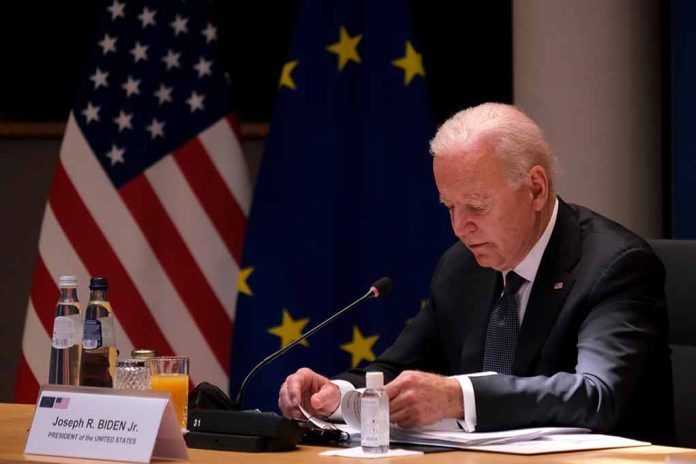
The Biden administration’s decision to provide Egypt with $1.3 billion in military aid raises concerns about human rights and regional stability.
At a Glance
- U.S. to grant Egypt $1.3 billion in military assistance, overriding human rights concerns
- Decision linked to Egypt’s role in regional peace efforts and U.S. national security priorities
- Human rights organizations dispute claims of improvements in Egypt’s human rights record
- Critics argue the move prioritizes short-term political considerations over human rights
U.S. Military Aid to Egypt: A Balancing Act
The Biden administration has greenlit $1.3 billion in military assistance to Egypt, a decision that has sparked debate over the balance between strategic interests and human rights concerns. Secretary of State Antony Blinken announced that this aid would not face the usual conditions tied to human rights improvements, citing national security interests as the primary reason for the waiver.
This move comes as Egypt plays a crucial role in regional diplomacy, particularly in negotiating ceasefires between Israel and Hamas. The State Department emphasized the importance of Egypt’s contributions to U.S. national security priorities, including efforts to resolve the ongoing Israel-Hamas conflict.
Human Rights Concerns Persist
Despite the administration’s claims of progress, human rights organizations paint a different picture of the situation in Egypt. Watchdogs like Amnesty International and Human Rights Watch report ongoing repression, including arrests of critics, journalists, and activists.
“Authorities released hundreds of detainees but arrested much more, adding to the thousands of critics, including journalists, peaceful activists, and human rights defenders,” Human Rights Watch said in an assessment of conditions in Egypt.
These reports stand in stark contrast to the State Department’s assertion that Egypt has made “clear and consistent” improvements, such as the release of political prisoners. The discrepancy has led to criticism from both human rights advocates and some U.S. lawmakers.
Strategic Considerations vs. Human Rights
The decision to waive human rights conditions on military aid to Egypt highlights the complex relationship between strategic interests and human rights advocacy in U.S. foreign policy. Critics argue that this approach may be counterproductive, potentially fueling further abuses and undermining long-term stability in the region.
“Rights protections for the Egyptian people are the point of these Congressional conditions,” said Sarah Yager, Washington director at Human Rights Watch. “The decision to roll through them might seem to serve a short-term gain but only adds to impunity for the Egyptian government as it continues its assault on its own population.”
Supporters of the decision, however, emphasize Egypt’s crucial role in regional stability and its potential to contribute to resolving ongoing conflicts. The administration’s stance reflects a pragmatic approach to foreign policy, prioritizing immediate strategic gains over long-term human rights improvements.
Looking Ahead
As the U.S. continues to navigate its relationship with Egypt, the debate over military aid and human rights is likely to persist. The situation underscores the challenges of balancing strategic partnerships with principled stances on human rights. Moving forward, policymakers will need to carefully consider the long-term implications of their decisions on both regional stability and the promotion of democratic values.
The ongoing scrutiny of U.S. military aid to Egypt serves as a reminder of the complex interplay between foreign policy objectives and ethical considerations in international relations. As the situation evolves, it will be crucial for the administration to demonstrate how this aid contributes to both regional security and the advancement of human rights in a meaningful way.













